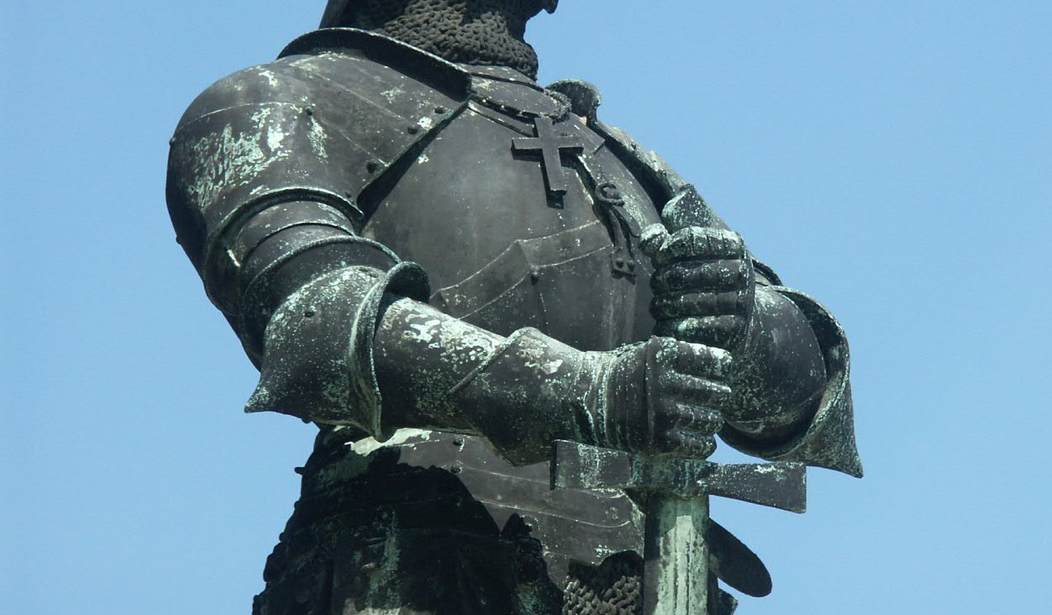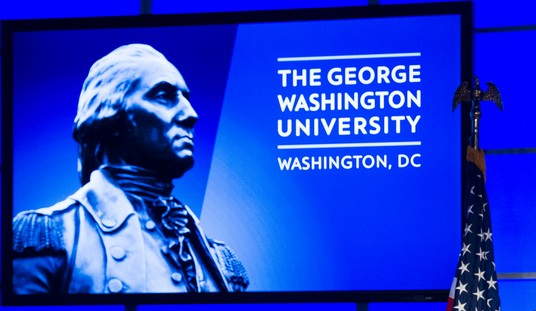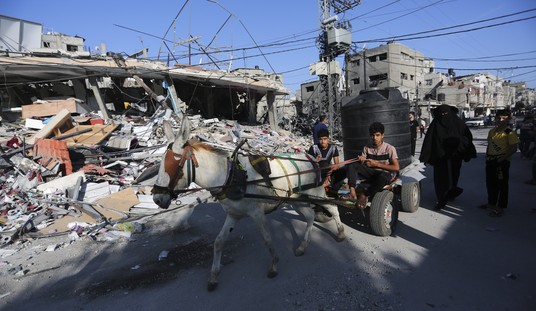One of the most terrible pitched battles between Christians and Muslims—which took a total of three carnage-soaked days to conclude (October 17-20)—was waged this week on European soil.
The year was 1448, and the Ottoman Turks had been invading and terrorizing the Balkans for several years. One of the staunchest Christian foes of the Muslims, John Hunyadi, governor of Hungary, decided enough was enough, as evident in a letter he wrote to the pope on September 17:
[T]he enemy attacks our neighbors [the Serbs], incites [them] to war against us. We have decided to attack him instead of waiting for him to attack us. We have had enough of our men enslaved, our women raped, wagons loaded with the severed heads of our people, the sale of chained captives, the mockery of our religion…. [W]e shall not stop until we succeed in expelling the enemy from Europe.
Unfortunately for Hunyadi, none of the Hungarian nobles, who had always despised the veteran fighter for not being a true member of the nobility—that is, the elite class—supported him. Nor would the pope, whom Hunyadi had implored on several occasions, send aid.
Hunyadi set off counting on at least being able to meet up with the Albanians, but the mercurial Serbian despot—casting his lot with the Ottomans once again—prevented their passage. Frustration turned to rage when Hunyadi and his men learned that the Serbs had betrayed them, including by “refusing to take up arms against the Turks, though the war was started to right their wrongs and recover their possessions now in Turkish hands,” writes a Polish chronicler.
Finally, at the fields of Kosovo—where, nearly sixty years earlier, and rather ominously, the Turks had first crushed a Christian coalition in 1389—Sultan Murad II, with as many as 60,000 Ottomans, met Hunyadi and his 24,000 men. The latter defiantly harangued his outnumbered men to fight with all their might and either “win a good and secure life for our country, forever,” or “die with glory, and eternal life is waiting for us on the other side.” For his part, the Muslim sultan dismounted, fell to the floor facing Mecca, performed two prostrations, and implored Allah to empower the “community of Muhammad.”
The battle lasted a full three days, from October 17–20, with many reverses and shedding of blood. The contemporary account of Aeneas Silvius (the future Pope Pius II) follows:
Hunyadi did not wait to be challenged but initiated the fight himself. When battle was commenced, the outcome of the struggle long remained uncertain. Where Hunyadi fought, the enemy was routed and turned tail, and a great slaughter was carried out. In the same way, Murad was victorious on his own wing, where he overwhelmed and routed the Hungarians. Finally, when the two victors came head to head, the Christians were unable to withstand the onslaught of the Turks. Although they were superior in courage, they were surpassed in numbers and compelled to give way out of exhaustion rather than defeat.
Despite Hunyadi’s “threats and pleas,” the outnumbered Christian army began to crumble; before long its “rank and file was massacred.” Fifteen thousand Christians lay dead; not content, Murad ordered them all decapitated, their heads placed on spears.
During the carnage and chaos, three Muslims captured Hunyadi, without knowing who he was, for he was often fighting at the front alongside his men. The chronicler Jan Długosz has the rest:
One of them goes off to hunt other fugitives, leaving the others to guard Hunyadi. These now quarrel over a golden crucifix he wore under his shirt, which they had not previously noticed. As they are squabbling, Hunyadi picks up a sword and kills one of them and wounds the other, and so recovers his possessions. He wanders for several days and eventually reaches Serbian territory and, trustingly, goes to a castle, where he is seized and kept prisoner for three months.
Clearly, the significance of the word “Balkanization” is much older than commonly assumed.
At any rate, Hungary’s elites got what they wanted—the disgrace of Hunyadi. He remained governor, though his prestige tanked; no one wanted to hear any more talk of Crusades against the Turks. Considering that the army he had spent two years rebuilding had been annihilated at Kosovo, the upper nobles became increasingly aggressive and defiant.
Rather than fold and capitulate, however, Hunyadi revealed that there was more to him than battle and bloodshed, and the next few years saw him transformed into an adroit politician and diplomat—until, that is, the great siege of Belgrade, where the Turks suffered one of their most humiliating defeats at his hands.
The above account was excerpted from and is documented in Ibrahim’s Defenders of the West: The Christian Heroes Who Stood Against Islam.









Join the conversation as a VIP Member